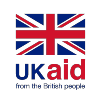When the CLARISSA team first started working in the community in 2020, COVID-19 was already prevalent in Bangladesh – many children had lost their jobs and the situation for families had become increasingly volatile. Underpinning our approach is the principle that children, families, communities have the knowledge and experience of their own lives, so they should be at the centre of generating sustainable solutions and take action to address child labour. It was pivotal for us to build trust and rapport as we prepared to work with them.
It was evident however, that the community was already overburdened with various surveys from the government and NGOs aiming to provide emergency aid support during the pandemic. Community members told our researchers that they were tired of providing information to people with unrealistically high expectations for supporting their livelihoods. In this our context, it took a lot of effort to build positive relationships – however, there are always some foundational principles to consider in building trust:
Showing respect
Irrespective of age, gender and/or socioeconomic situation, the team was mindful to remain patient and listen to people’s experiences. This helped create an openness and mutual respect, as stated by one parent: ‘we the poor people are always neglected by people like you. But today my heart is filled with love and dignity for the respect you have shown to me’.
Understanding reasons for lack of engagement
The team wanted to understand the reasons for community members’ hesitation and realised that this was often due to their disappointment and frustration with the unfulfilled promises made by development practitioners. Despite these initial setbacks, team members listened to the community members, showed patience, and let the community members express themselves openly.
Respecting cultural norms
Working in the slums proved difficult, since there was very little space to sit and rest. The community mobilisers and participatory facilitators were respectful of cultural norms, for example male staff did not enter households where only female members were living, and vice versa.
Building rapport with house managers
House managers* played a crucial role in reaching out to targeted households. It took several visits from the community mobilisers, and informal discussions to explain the purpose of the intervention, to start to develop friendships with them. The strategy that was most successful in gaining their support was recognising their leadership roles within the community.
Using sports to build rapport with children
In a group discussion with a few children, community mobilisers became aware of the children’s interest in sports. Asif Zabed, a community mobiliser, shared: ‘Children came up with a suggestion to form a cricket team (tape tennis cricket). With the support from some other community mobilisers we arranged cricket matches in the little community playground nearby’. This helped in building trust with the children in the community, as well as with their parents.
Gaining support from the gatekeepers
Gatekeepers have a good knowledge of the community, easy access to different segments of the population, and credibility in their neighborhoods. Our researchers developed personal relationships with several of them, which helped the research team to gain access and build trust with community members.
Following consent procedures
The team was very careful to follow the consent procedures, especially when working with children, which helped to build trust among the community. As expressed by one of the community gatekeepers, ‘this is an unusual experience for the community to see how seriously you follow and respect the consent process. Normally people like you visiting us do not bother much with their formal consent and respect their consent. They get straight to business as it is taken for granted’.
Children as facilitators
The Participatory Action Research (PAR) team identified and supported a group of child facilitators to work alongside them in the process of collecting and analysing life stories. We organised a week-long training session, which was designed carefully to ensure it was inclusive and participatory. This helped children to open up and engage in different games, exercises, and roleplays. As stated by Champa (Pseudonym), ‘we want to work with CLARISSA, there is an opportunity to change lives by collecting stories from others. Sharing happiness and sorrows and gaining real-life experience’.
Following safeguarding measures
The CLARISSA team followed rigorous safeguarding measures to ensure that children felt safe, respected, and connected during the research process. The team ensured safe transportation of the children from and to the venue. Some of the parents/guardians also attended the workshop as observers. The overall arrangement and positive standpoint of CLARISSA on safeguarding again helped in building rapport with the parents and guardians of the children in the community.
This reflection is largely based on our work specifically in slum areas of Dhaka. This is an area where there is a high prevalence of the worst forms of child labour. Even without the backdrop of the global pandemic, the communities are living in highly precarious situations – in this, it is fundamental that our starting point to working with them is understanding the cultural norms and values and showing the highest level of respect to the community members. This principle was key to building rapport with the community. Listening to the community members carefully and patiently, being sensitive to their concerns, showing empathy to their sorrows and celebrating their successes were the key strategies for building trusting relationships.
*In Hazaribag some large or tin-shaded houses are generally managed by one or two managers (house managers) who are mainly responsible for renting the small units of rooms, collect rent, fix general servicing issues and they have huge influence over the tenants.
